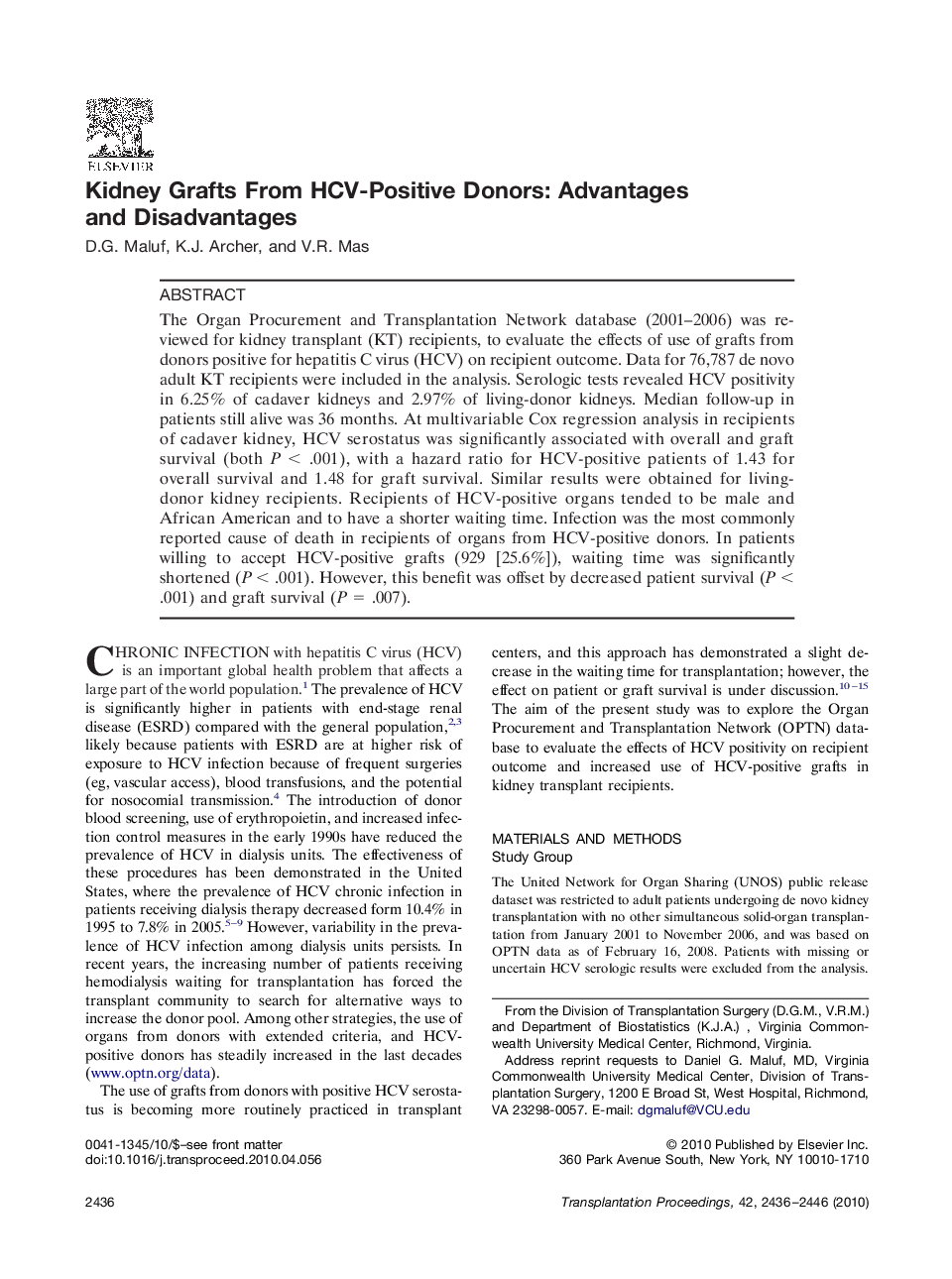| Article ID | Journal | Published Year | Pages | File Type |
|---|---|---|---|---|
| 4259415 | Transplantation Proceedings | 2010 | 11 Pages |
The Organ Procurement and Transplantation Network database (2001–2006) was reviewed for kidney transplant (KT) recipients, to evaluate the effects of use of grafts from donors positive for hepatitis C virus (HCV) on recipient outcome. Data for 76,787 de novo adult KT recipients were included in the analysis. Serologic tests revealed HCV positivity in 6.25% of cadaver kidneys and 2.97% of living-donor kidneys. Median follow-up in patients still alive was 36 months. At multivariable Cox regression analysis in recipients of cadaver kidney, HCV serostatus was significantly associated with overall and graft survival (both P < .001), with a hazard ratio for HCV-positive patients of 1.43 for overall survival and 1.48 for graft survival. Similar results were obtained for living-donor kidney recipients. Recipients of HCV-positive organs tended to be male and African American and to have a shorter waiting time. Infection was the most commonly reported cause of death in recipients of organs from HCV-positive donors. In patients willing to accept HCV-positive grafts (929 [25.6%]), waiting time was significantly shortened (P < .001). However, this benefit was offset by decreased patient survival (P < .001) and graft survival (P = .007).
